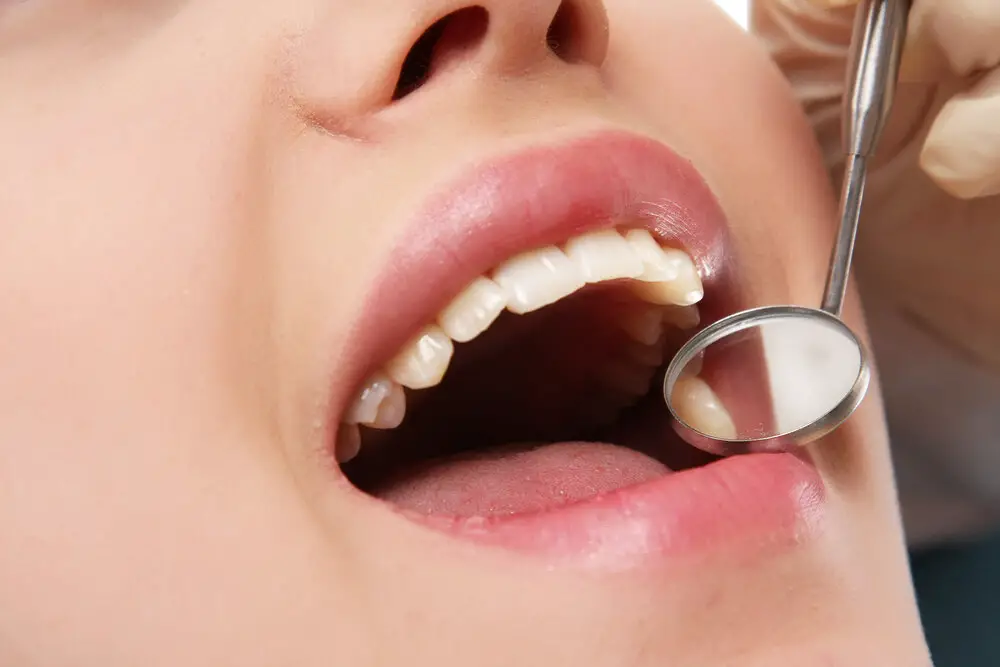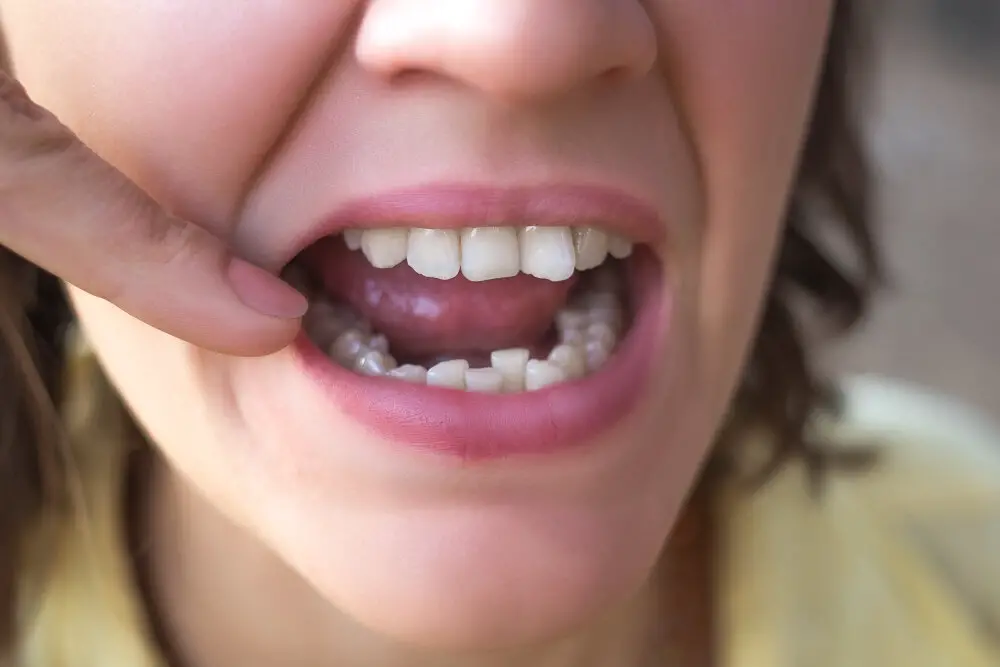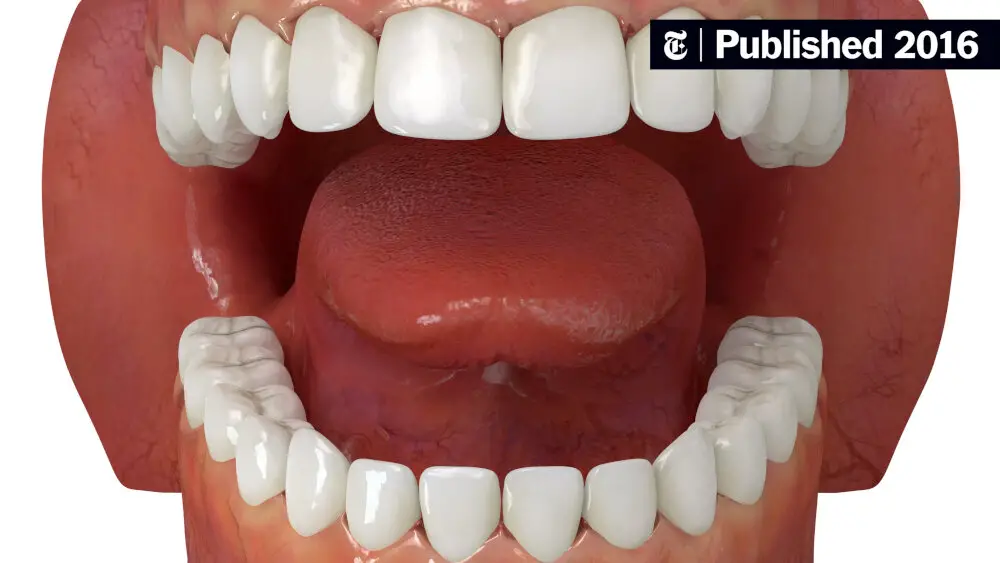Teeth Whitening: How Long to Expect Pain and Sensitivity?

Teeth whitening is a cosmetic dental procedure that has become increasingly popular in recent years. A bright, white smile is often associated with youthfulness, health, and attractiveness, and many people seek out teeth whitening treatments to improve their appearance and boost their confidence. However, while teeth whitening can be an effective way to achieve a brighter smile, it can also cause some discomfort and sensitivity. If you’re considering teeth whitening, you may be wondering how long to expect pain and sensitivity. The answer depends on several factors, including the type of treatment you choose, the condition of your teeth, and your individual sensitivity level. In this article, we’ll explore the various factors that can affect pain and sensitivity during and after teeth whitening, as well as some tips for managing these symptoms and achieving the best possible results.
Teeth whitening is a process that involves removing stains and discoloration from teeth to improve their appearance. It is typically done using a bleaching agent, which breaks down the chemical bonds that cause discoloration. While there are many different types of teeth whitening products available, they all work in essentially the same way. Some products are designed to be used at home, while others require a visit to the dentist. The length of time it takes to see results can vary depending on the product used and the severity of the discoloration. However, it is important to note that teeth whitening can cause pain and sensitivity in some people, especially if done improperly or too frequently. It is always best to consult with a dentist before beginning any teeth whitening regimen.
Common side effects associated with teeth whitening procedures include pain and sensitivity. This is because the process typically involves the use of chemicals that penetrate the enamel and remove stains. While pain and sensitivity are often temporary and subside within a few days, they can be quite uncomfortable and may require the use of pain relievers. Other potential side effects include gum irritation, throat irritation, and uneven whitening. It is important to discuss any concerns or questions about the procedure with your dentist or healthcare provider before undergoing teeth whitening treatment. Overall, with proper care and attention, teeth whitening can provide noticeable and long-lasting results.
Understanding the timeline of pain and sensitivity is crucial when it comes to teeth whitening. It is common to experience some discomfort during and after the whitening process, but knowing what to expect and when it will subside can help alleviate anxiety and discomfort. Typically, sensitivity and pain may occur during the whitening treatment, but should not last more than a few hours. It is important to note that everyone’s experience may differ, and some individuals may experience more prolonged or severe sensitivity. By understanding the timeline of pain and sensitivity, individuals can make informed decisions about their teeth whitening treatment and take necessary steps to minimize discomfort.
What Causes Pain and Sensitivity During Teeth Whitening?

Teeth whitening is a popular cosmetic dental procedure that involves the use of bleaching agents to remove stains and discoloration from the teeth. While this treatment can help to create a brighter and more attractive smile, it can also be associated with pain and sensitivity. The main cause of pain and sensitivity during teeth whitening is the use of peroxide-based bleaching agents. These agents work by penetrating the enamel layer of the teeth and breaking down the chemical bonds that cause stains. However, this process can also cause temporary damage to the tooth enamel, which can lead to pain and sensitivity. Another factor that can contribute to pain and sensitivity during teeth whitening is the concentration of the bleaching agent. Higher concentrations of peroxide can be more effective at removing stains, but they can also cause more damage to the enamel layer of the teeth. Additionally, the duration of the treatment can also play a role in the level of pain and sensitivity experienced. Longer treatment times can increase the amount of exposure to the bleaching agent, which can lead to more discomfort. To minimize pain and sensitivity during teeth whitening, it is important to choose a reputable and experienced dental professional and to follow their instructions carefully.
Teeth whitening is a cosmetic procedure that involves the use of various agents to lighten the color of teeth. The process of teeth whitening involves the use of bleaching agents, such as hydrogen peroxide or carbamide peroxide, which penetrate the enamel and break down the stains that have accumulated over time. The whitening agents work by oxidizing the colored molecules, which then become colorless or much less visible. Depending on the severity of the discoloration, teeth whitening can take anywhere from a few minutes to several hours. It is important to note that while teeth whitening is generally safe, it can cause temporary pain and sensitivity in some individuals. This is due to the agents penetrating the tooth’s enamel and irritating the nerves within the tooth.
Pain and sensitivity can occur during the teeth whitening process due to the exposure of the dentin layer, which is the inner layer of the tooth that contains nerve endings. The bleaching agents used in teeth whitening can penetrate the enamel layer and reach the dentin layer, causing a temporary irritation to the nerves. In addition, the process of teeth whitening can also dehydrate the teeth, making them more susceptible to sensitivity. Factors such as the strength of the bleaching agent used, the duration of the treatment, and individual susceptibility can also contribute to the occurrence of pain and sensitivity. It is important to follow the instructions provided by dental professionals and to communicate any discomfort experienced during the process.
Before undergoing teeth whitening treatment, it is important to prepare yourself for potential discomfort. Firstly, it is advisable to consult with your dentist to discuss any pre-existing dental conditions that may make you more prone to sensitivity. Additionally, it is recommended to use desensitizing toothpaste for a few weeks prior to the treatment to help strengthen and protect your teeth. It is also important to avoid consuming foods and drinks that are known to stain teeth, such as coffee, tea, and red wine, as this can exacerbate sensitivity. Lastly, be sure to follow your dentist’s post-treatment instructions carefully to minimize any discomfort and ensure optimal results. With these steps in mind, you can better prepare yourself for a successful and comfortable teeth whitening treatment.
How Long Should Pain and Sensitivity Last?

Teeth whitening is a popular cosmetic treatment that enhances the appearance of your teeth by removing surface stains and discoloration. However, it is common for patients to experience pain and sensitivity after the procedure. The duration of discomfort depends on several factors, including the type of whitening treatment and the individual’s oral health. Typically, sensitivity and pain after teeth whitening should subside within a few days to a week. This is because the bleaching agent used in teeth whitening treatments can temporarily weaken the enamel, making the teeth more susceptible to sensitivity. However, the sensitivity should gradually decrease as the enamel begins to remineralize and strengthen. In some cases, patients may experience sensitivity for a longer period, up to several weeks. It is important to follow proper oral hygiene practices and avoid consuming staining foods and drinks to help minimize sensitivity and pain. If the discomfort persists or worsens, it is recommended to consult with your dentist.
The average timeline for pain and sensitivity during teeth whitening varies depending on the method used and the individual’s tooth sensitivity. In-office treatments can cause immediate sensitivity that lasts for a few hours, while at-home treatments may cause sensitivity that can last for a few days. Whitening strips and gels can cause sensitivity that can last for up to a week. It is important to note that the severity and duration of pain and sensitivity can differ from person to person. It is recommended to consult with a dentist before undergoing any teeth whitening treatment to determine the best method and to discuss any potential risks and side effects.
There are a variety of factors that can affect the duration of pain and sensitivity experienced after teeth whitening treatments. One major factor is the type of treatment used, as some methods may be more aggressive than others. Additionally, the severity of discoloration prior to treatment can also impact how long it takes for sensitivity to subside. Other factors such as individual pain tolerance and the use of at-home follow-up treatments can also play a role. It is important to discuss these factors with a dental professional prior to undergoing teeth whitening to ensure a safe and comfortable experience.
If you are experiencing pain or sensitivity after teeth whitening, it is important to contact a dental professional as soon as possible. While it is normal to experience some discomfort after the procedure, prolonged or severe pain could be a sign of a more serious issue. A dental professional will be able to assess the situation and provide recommendations for treatment or pain relief. It is also important to follow any aftercare instructions provided by the dentist or hygienist to ensure a smooth and successful recovery. Don’t hesitate to reach out to your dental professional if you have any concerns or questions about your teeth whitening procedure.
Tips for Managing Pain and Sensitivity

When it comes to teeth whitening, pain and sensitivity are common side effects. Fortunately, there are ways to manage them. One tip is to use a desensitizing toothpaste before and after the whitening treatment. This can help reduce sensitivity by blocking the tubules in the dentin that lead to the nerves. Another tip is to use a lower concentration of whitening gel or to reduce the amount of time the gel is in contact with the teeth. This can help reduce the intensity of the pain and sensitivity. In addition, avoiding hot or cold beverages and foods for the first few days after the treatment can help reduce sensitivity. Another tip for managing pain and sensitivity during teeth whitening is to use a soft-bristled toothbrush and avoid aggressive brushing. Brushing too hard or using a hard-bristled toothbrush can exacerbate sensitivity by wearing down the enamel and exposing the dentin. It’s also important to avoid acidic foods and drinks, such as citrus fruits and soda, which can further irritate sensitive teeth. Additionally, taking over-the-counter pain relievers such as ibuprofen can help manage any discomfort. By following these tips, you can minimize the pain and sensitivity associated with teeth whitening and enjoy a brighter, more confident smile.
If you’re experiencing discomfort after a teeth whitening treatment, there are several home remedies you can try to alleviate the pain and sensitivity. One option is to apply a cold compress or ice pack to the affected area, as this can help reduce swelling and numb the area. Rinsing your mouth with salt water can also help soothe any inflammation and promote healing. Additionally, avoiding hot or cold foods and beverages, as well as acidic or sugary foods, can help prevent further irritation to your teeth and gums. You may also want to consider using a desensitizing toothpaste or gel, which can help block pain signals and reduce sensitivity. With these simple remedies, you can manage discomfort and get back to enjoying your newly whitened smile.
When it comes to managing pain and sensitivity after teeth whitening, there are several over-the-counter pain relief options available. Nonsteroidal anti-inflammatory drugs (NSAIDs), such as ibuprofen or aspirin, are commonly used to alleviate pain and reduce inflammation. Acetaminophen is another option for pain relief, but it does not have anti-inflammatory properties. Additionally, numbing gels or creams that contain benzocaine can be applied to the affected area for temporary relief. It is important to follow the recommended dosage and usage instructions of any over-the-counter pain relief medication and to consult with a dentist if pain or sensitivity persists.
When considering teeth whitening, it is important to be mindful of what you eat and drink. Certain foods and beverages can stain your teeth and decrease the effectiveness of the whitening treatment. It is best to avoid dark-colored foods such as berries, soy sauce, and tomato sauce that can leave pigments on the surface of your teeth. Additionally, beverages like coffee, tea, and red wine can also cause staining. Acidic foods like citrus fruits and vinegar can also weaken the enamel of your teeth, making them more vulnerable to sensitivity during the whitening process. To ensure the best results and minimize discomfort, it is recommended to avoid these foods and drinks for at least 24 hours after teeth whitening treatment.
How to Prevent Pain and Sensitivity in the Future

Taking care of your teeth is crucial to prevent pain and sensitivity in the future. One of the best ways to prevent pain and sensitivity is by maintaining good oral hygiene. Brushing your teeth twice a day, flossing daily, and using mouthwash can help keep your teeth and gums healthy. It is also important to visit your dentist regularly for checkups and cleanings. Your dentist can detect any potential problems early on and address them before they become more serious issues. Additionally, avoiding certain foods and drinks, such as sugary and acidic items, can also help prevent pain and sensitivity in the future. Another way to prevent pain and sensitivity is by being cautious when using teeth whitening products. Although these products can help you achieve a brighter smile, they can also cause pain and sensitivity. It is important to follow the instructions carefully and not use the products too frequently. Overusing teeth whitening products can damage your tooth enamel and cause sensitivity. You can also consult with your dentist before using teeth whitening products to ensure that they are safe for you to use. By being mindful of your oral health and taking precautions when using teeth whitening products, you can prevent pain and sensitivity in the future.
Maintaining a healthy smile requires more than just brushing and flossing regularly. Lifestyle changes such as avoiding tobacco products, limiting sugary and acidic foods and beverages, drinking plenty of water, and getting enough calcium and vitamin D can all contribute to a brighter and healthier smile. Regular dental check-ups and cleanings are also important to catch any potential issues early on. Additionally, incorporating healthy habits such as exercise and stress management can help improve overall oral health. By making these lifestyle changes, individuals can not only improve the appearance of their teeth but also reduce the risk of tooth decay, gum disease, and other oral health problems.
If you’re looking for alternative whitening options, there are several choices available. One popular choice is using activated charcoal, which is believed to have natural whitening properties. Another option is oil pulling, which involves swishing coconut or sesame oil around your mouth for up to 20 minutes. Some people also turn to baking soda and hydrogen peroxide, which can be mixed together to create a paste that’s applied to the teeth. However, it’s important to note that these alternatives may not be as effective as professional teeth whitening treatments, and could potentially cause harm if used improperly. As with any dental treatment, it’s best to consult with your dentist before trying any alternative whitening methods.
Regular dental checkups are crucial for maintaining good oral health and preventing dental problems. During these checkups, a dentist can detect any issues early on, such as cavities, gum disease, or oral cancer, and provide appropriate treatment before they worsen. Additionally, regular cleanings help remove plaque and tartar buildup that can lead to tooth decay and other dental problems. By scheduling regular dental checkups, individuals can ensure their teeth and gums remain healthy, reduce the risk of tooth loss, and ultimately save money on costly dental procedures in the future. So, it is highly recommended to visit the dentist every six months for a routine checkup and cleaning to keep your teeth and gums healthy and beautiful.
Teeth whitening is a popular cosmetic procedure that many people undergo to improve their smile. However, pain and sensitivity during teeth whitening are common side effects that can occur during and after the process. The degree of pain and sensitivity experienced varies from person to person and depends on factors such as the strength of the whitening solution used and the length of time it is applied. Sensitivity can range from mild discomfort to severe pain that can last for several days. It is essential to follow the instructions provided by the dentist or whitening product manufacturer to minimize the risk of pain and sensitivity. Using desensitizing toothpaste, avoiding hot or cold foods, and taking pain relievers can also help alleviate discomfort.
Understanding the timeline when it comes to teeth whitening is crucial for anyone looking to undergo the procedure. This is because it helps manage expectations and prepare for any potential side effects, such as pain and sensitivity. Knowing how long these effects may last can help patients plan accordingly and alleviate any anxiety or discomfort that may arise. Furthermore, understanding the timeline can also help patients determine whether the treatment is working as intended or if adjustments need to be made. In short, taking the time to understand the timeline of teeth whitening can ensure a smoother and more successful outcome.
It is essential to prioritize dental health and seek professional advice when needed to maintain a healthy and beautiful smile. Neglecting dental health can lead to various oral health problems, including tooth decay, gum disease, and even tooth loss. Regular dental check-ups and cleanings can prevent these issues and detect any dental problems early on. Additionally, seeking professional advice before attempting any teeth whitening treatment can ensure safe and effective results. It is crucial to follow the instructions provided by dental professionals and be patient when experiencing pain and sensitivity during the teeth whitening process. Prioritizing dental health not only improves oral health but also boosts confidence and overall well-being.
Conclusion

In conclusion, teeth whitening is a popular cosmetic dental procedure that can enhance your smile and boost your confidence. While pain and sensitivity are common side effects, the duration and severity can vary depending on the individual and the method used. It is important to follow the instructions of your dentist or dental professional to minimize discomfort and achieve optimal results. With proper care and maintenance, the benefits of teeth whitening can last for several months or even years. Ultimately, the decision to undergo teeth whitening should be based on a careful consideration of the risks and benefits, as well as your personal preferences and goals for your oral health and appearance.







